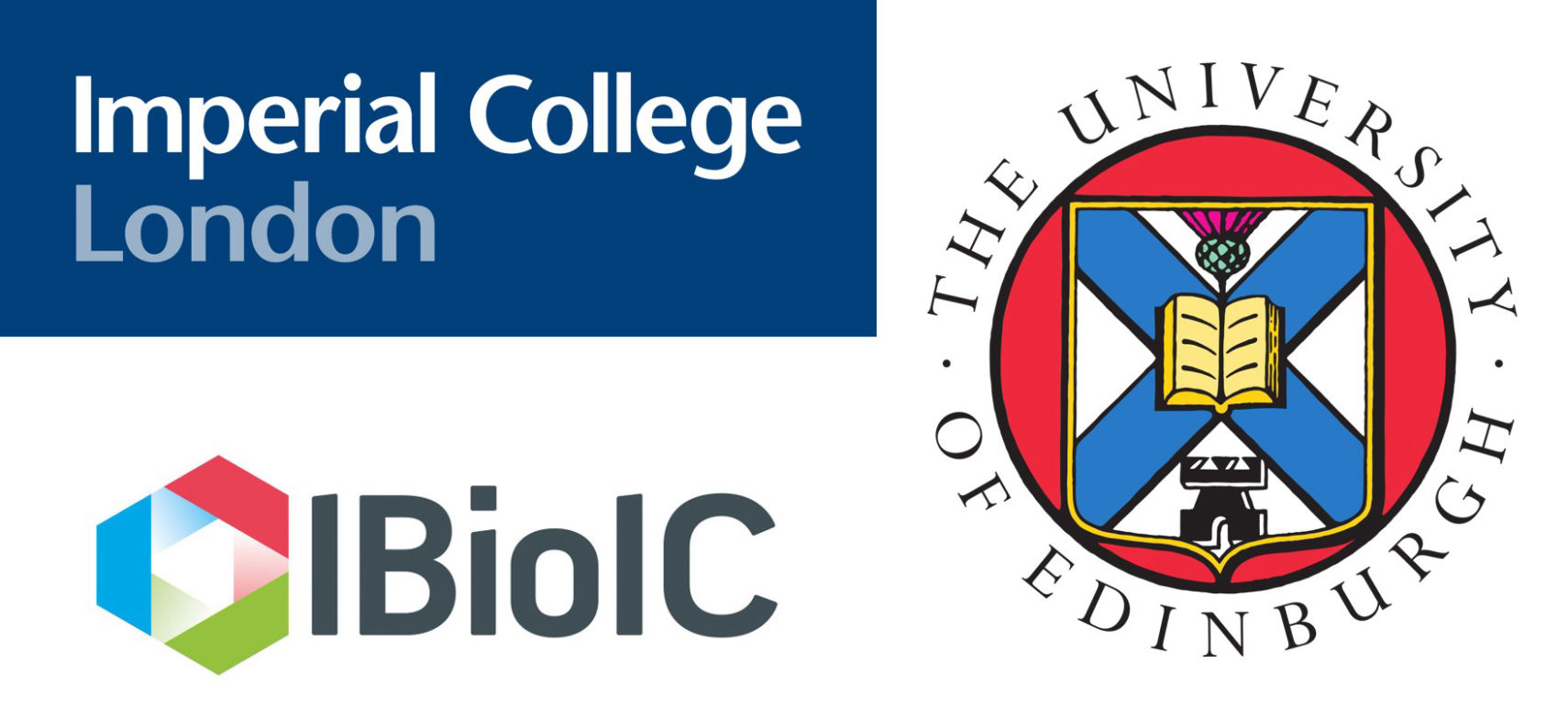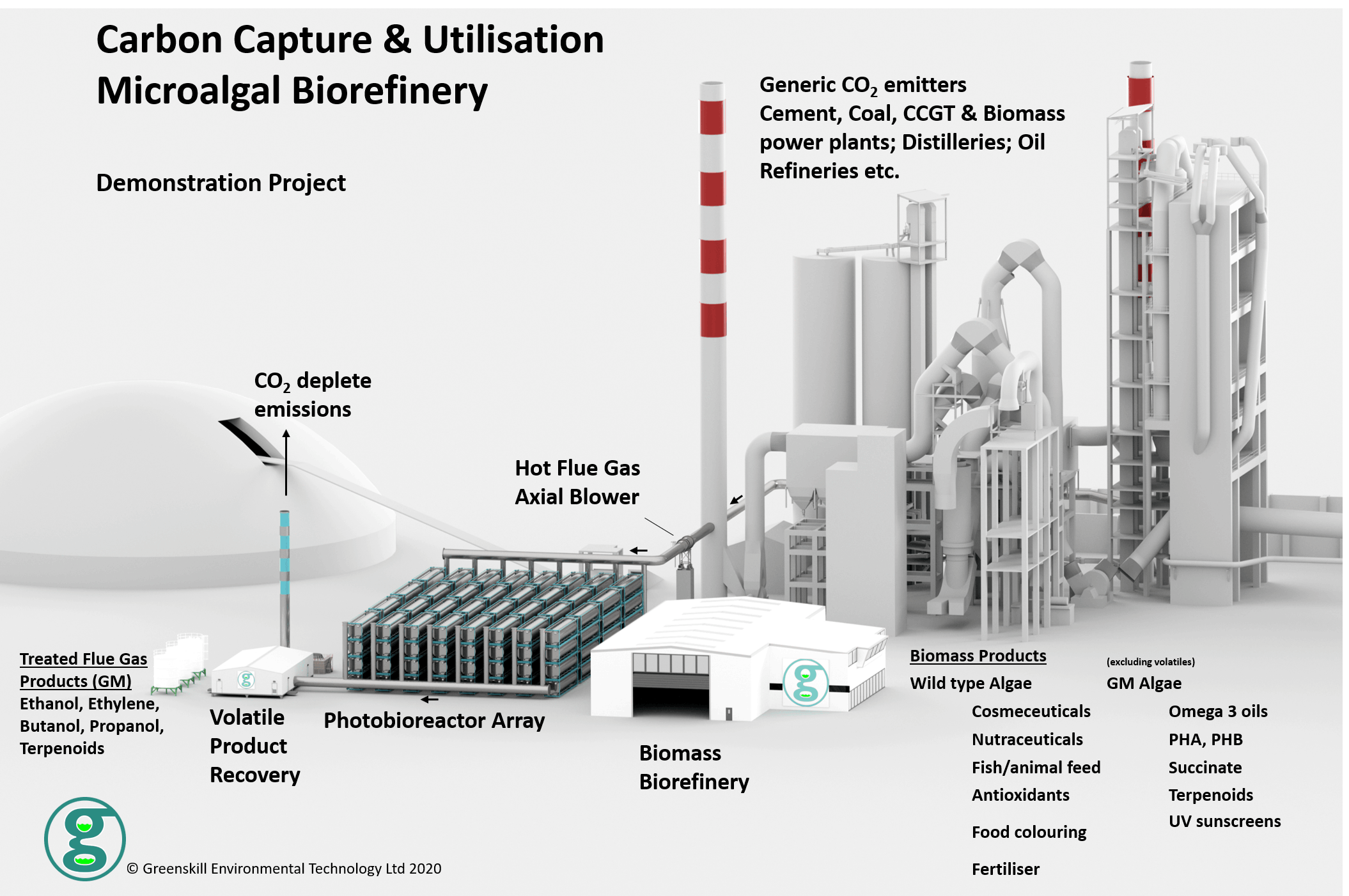Microalgal Biorefinery
Carbon Capture & Utilisation
Power generation, petroleum refining, cement manufacture, steelmaking, waste incinerators, brewing, distilling are just a few industries that contribute a major share of greenhouse gas emissions, thus exacerbating climate change.
Greenskill develop microalgal bio-refineries that sequester and convert CO2 into renewable biofuels, commodity chemicals, bioplastics, food, animal and aquaculture feed products, and other value-added products such as cosmetics, nutraceuticals, pharmaceuticals, bio-fertilizers, bioactive substances.
Since our ground-breaking power station carbon capture project with Boots PLC in 2008-2015, we have dramatically improved the process and minimised its footprint.
We duct hot flue gas emissions from industry directly into our newest carbon capture photobioreactors, where microalgae proliferate and consume the CO2, simultaneously releasing oxygen through photosynthesis.
With metabolic engineering, our microalgae can produce high value products from emissions. By combining engineered photosynthetic pathways with efficient energy management and downstream processing, Greenskill can do this economically and sustainably.
We collaborate with emitters to determine how best to monetise microalgal products. For example, distillers CO2 emissions can be converted into ethanol, petroleum refinery emissions into bioplastics, and health & beauty manufacturers’ emissions into essential oils and anti-ageing products.
The recent development of CRIPSR-Cas9 related metabolic engineering tools have revolutionised and accelerated the development pipeline for high value products from microalgae.
We collaborate with the UK’s leading microalgal synthetic biologists and metabolic engineers to realise these products.

